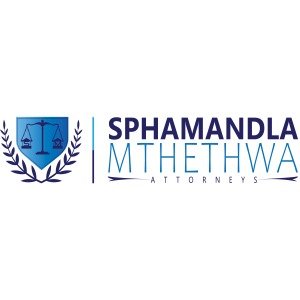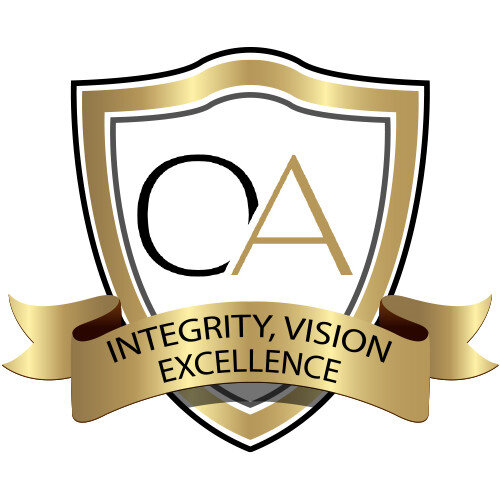Best Private Equity Lawyers in Durban
Share your needs with us, get contacted by law firms.
Free. Takes 2 min.
List of the best lawyers in Durban, South Africa
About Private Equity Law in Durban, South Africa
Private Equity involves investment funds that acquire ownership stakes in private companies or initiate buyouts of public companies to make them private. In Durban, as one of South Africa’s key economic hubs, private equity plays a significant role in supporting business growth, employment, and innovation. The city is home to several prominent businesses and industries, making it an attractive destination for local and international private equity investors. Private equity transactions are subject to a complex legal landscape involving company law, the regulation of financial markets, and cross-border considerations.
Why You May Need a Lawyer
Legal expertise in private equity is essential due to the sophisticated nature of investments, regulatory requirements, and the significant financial stakes involved. You might need a lawyer if you are:
- Considering investing in or selling interests in a private company
- Structuring or negotiating a private equity deal
- Advising on the compliance of cross-border or offshore investments
- Drafting or reviewing investment agreements, shareholder agreements, or subscription agreements
- Undergoing due diligence, mergers, or acquisitions
- Managing risk, intellectual property, or regulatory concerns within a transaction
- Faced with disputes between investors, shareholders, or partners
A specialised lawyer helps to ensure that transactions comply with local laws, protect your interests, and avoid potential pitfalls.
Local Laws Overview
Private equity in Durban is governed by several primary statutes and regulatory frameworks:
- Companies Act, 2008 - This is the foundational legislation regulating company structures, directors' duties, shareholder rights, and the process for mergers and acquisitions.
- Financial Sector Regulation Act - Oversees the conduct of financial institutions and the integrity of the financial system. The Financial Sector Conduct Authority (FSCA) supervises compliance.
- Competition Act, 1998 - Ensures that acquisitions and mergers do not reduce market competition or create monopolies.
- Exchange Control Regulations - The South African Reserve Bank (SARB) regulates cross-border flows of capital, which is highly relevant in private equity, especially where offshore investors are involved.
- Broad-Based Black Economic Empowerment (B-BBEE) Act - Influences private equity transactions by encouraging transformation through ownership and management requirements.
Investors and business owners must also be mindful of tax laws and sector-specific regulations that may apply to their investments.
Frequently Asked Questions
What is private equity and how does it work in Durban?
Private equity involves investing in private companies or taking public companies private. In Durban, funds raise capital from investors and purchase equity stakes to improve the business and realize returns through a future sale or initial public offering.
Are there specific legal requirements for foreign investors in private equity?
Yes, foreign investors are subject to exchange control regulations monitored by the South African Reserve Bank. Foreign ownership restrictions may apply in certain sectors, and regulatory approval is often required for cross-border transactions.
How important is due diligence in a private equity deal?
Due diligence is critical. It involves detailed investigation of the target company’s financial, legal, commercial, and operational aspects to assess risks, value, and suitability for investment or acquisition.
What legal agreements are necessary in private equity transactions?
Common agreements include shareholder agreements, subscription agreements, purchase and sale agreements, and management agreements. These set out the rights, responsibilities, and protections of all parties.
What are the main risks in private equity investments?
Risks include regulatory compliance failures, disputes with partners, loss of management control, market fluctuations, and potential for limited liquidity before exiting the investment.
How are private equity funds regulated in Durban?
Private equity funds are primarily regulated by the FSCA under the Financial Sector Regulation Act. They must also comply with the Companies Act, Exchange Controls, and other sector-specific laws.
How does B-BBEE affect private equity transactions?
B-BBEE legislation impacts deals by encouraging or mandating black ownership and participation in businesses, influencing structuring, valuation, and management decisions in many sectors.
Who must approve mergers or acquisitions?
Significant mergers and acquisitions must receive approval from the Competition Commission to ensure compliance with competition law. Some deals may require notification and clearance from other regulators.
What tax considerations should be taken into account?
Tax implications include capital gains tax, corporate tax, and withholding tax on repatriation of profits. The structure of the investment often affects the tax outcome for both investors and the target company.
Can private equity disputes be resolved locally?
Yes, disputes may be resolved through South African courts or via alternative dispute resolution mechanisms such as arbitration, depending on what is specified in the transaction agreements.
Additional Resources
- Financial Sector Conduct Authority (FSCA) - Regulates and supervises financial institutions and private equity funds
- South African Reserve Bank (SARB) - Oversees exchange control regulations relevant to cross-border investments
- Competition Commission of South Africa - Approves and regulates large mergers and acquisitions
- South African Venture Capital and Private Equity Association (SAVCA) - Provides resources, policy advocacy, and industry research
- Department of Trade, Industry and Competition (DTIC) - Offers information on incentives and regulatory guidance for investors
- Durban Chamber of Commerce and Industry - Connects investors and provides business support services locally
Next Steps
If you require legal assistance with a private equity matter in Durban, consider taking the following steps:
- Gather all relevant information and documents regarding your prospective investment, deal, or dispute.
- Identify your key goals and concerns related to the transaction or legal issue.
- Contact an experienced private equity lawyer or law firm who understands both the local market and the complexities of South African law.
- Request an initial consultation to discuss your needs, ask about the lawyer’s experience, fee structure, and approach.
- Seek clarity on the timeline, potential challenges, and compliance requirements before proceeding.
- Remain engaged in the process, and do not hesitate to request updates and explanations on any aspect you do not understand.
A qualified legal professional in Durban will be able to guide you through the intricacies of private equity transactions and help you navigate regulatory, commercial, and tax implications to achieve the best possible outcome.
Lawzana helps you find the best lawyers and law firms in Durban through a curated and pre-screened list of qualified legal professionals. Our platform offers rankings and detailed profiles of attorneys and law firms, allowing you to compare based on practice areas, including Private Equity, experience, and client feedback.
Each profile includes a description of the firm's areas of practice, client reviews, team members and partners, year of establishment, spoken languages, office locations, contact information, social media presence, and any published articles or resources. Most firms on our platform speak English and are experienced in both local and international legal matters.
Get a quote from top-rated law firms in Durban, South Africa — quickly, securely, and without unnecessary hassle.
Disclaimer:
The information provided on this page is for general informational purposes only and does not constitute legal advice. While we strive to ensure the accuracy and relevance of the content, legal information may change over time, and interpretations of the law can vary. You should always consult with a qualified legal professional for advice specific to your situation.
We disclaim all liability for actions taken or not taken based on the content of this page. If you believe any information is incorrect or outdated, please contact us, and we will review and update it where appropriate.

















